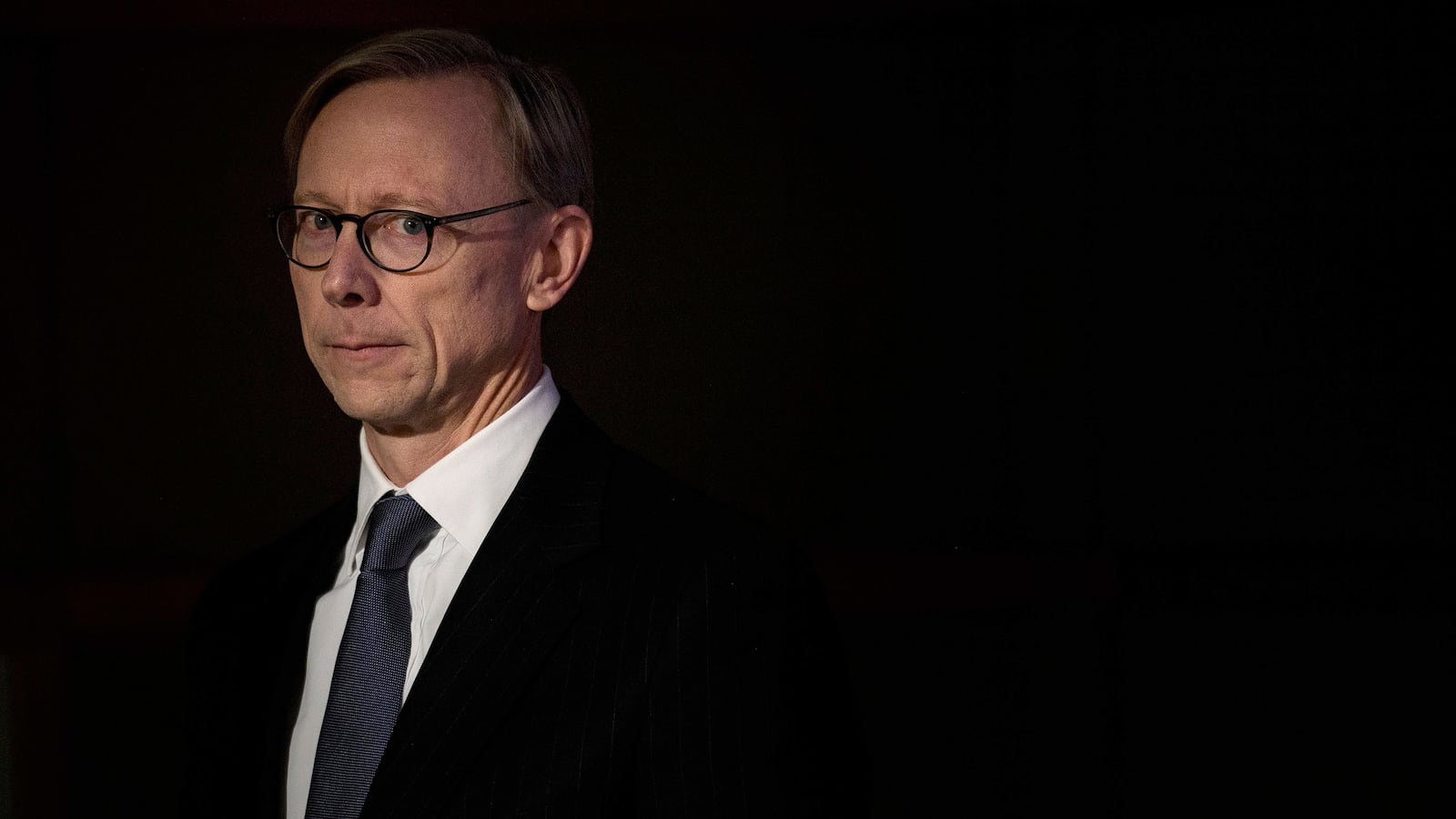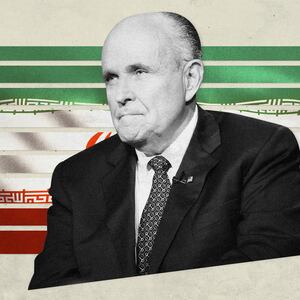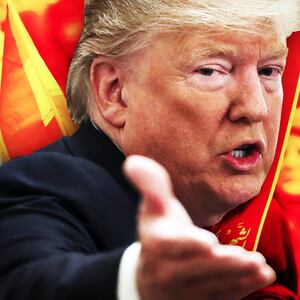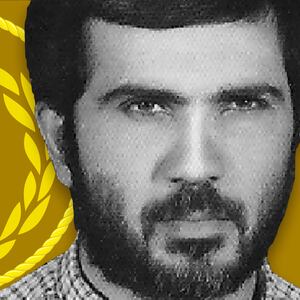The Trump administration’s top official overseeing Iran policy met with a representative of a controversial Iranian dissident group weeks after a U.S. strike killed Iran’s top military leader.
Brian Hook, a senior adviser to Secretary of State Mike Pompeo and the U.S. Special Representative for Iran, met on January 31 with Robert G. Joseph, a former senior State official who now represents the National Council of Resistance of Iran, according to a foreign agent filing that Joseph submitted to the Justice Department this week. The NCRI is the political arm of the People's Mujahedin of Iran—commonly known by Farsi acronym, MEK—a group that seeks regime change in Iran and was on the U.S. government’s official list of foreign terrorist organizations until 2012.
Joseph’s meeting with Hook came just a few weeks after a U.S. airstrike killed Gen. Qassem Soleimani, Iran’s top military commander. The MEK had long seen Soleimani as one of Iran’s foremost villains. In a blog post hailing his death, the NCRI described him as “an infamous symbol of the regime’s intimidation and murder.”
Soleimani was “directly responsible for killing some of my MEK people,” Rudy Giuliani, a long-time ally of the group, told The Daily Beast in January. “We don't like him very much.”
Yet, in the wake of that strike, Pompeo circulated a memo barring American officials from meeting with representatives of the MEK, citing its controversial history—it allegedly played a role in the assassination of three U.S. Army officers and three more civilian contractors—and poor public standing in Iran.
Neither Hook nor the State Department press office responded to requests for additional information on the meeting. Joseph also did not respond to a request for comment.
The meeting with Hook was one of three of U.S. government contacts reported in Joseph’s semi-annual filing under the Foreign Agent Registration Act, but the only one that took place after the Soleimani strike. Joseph also reported meeting with Hook in September, and the following month with Tim Morrison, a former White House National Security Council official who oversaw policy in Ukraine and Eastern Europe. Morrison declined to comment on the meeting.
Joseph’s FARA filing does not include any details on what was discussed at each of those meetings. In general, he told the Justice Department, he worked to “provide advice to NCRI officials on a range of issues, including: how best to counter false narratives about NCRI; how to improve the reach and effectiveness of the NCRI work on Iran's sponsorship ofterrorism, regional aggression and its nuclear program; and how to advance the cause of building a free and democratic Iran.”
Joseph also “provid[ed] advice to strengthen the protection and security of former Iranian refugee residents from the former U.S. military camp at Camp Liberty in Baghdad, Iraq, who are now residing outside Tirana, Albania,” according to his Justice Department filing.
The NCRI is headquartered in Paris and staffed by Iranian expatriates and exiles, many of whom have faced brutal treatment by the Iranian regime. The group’s website describes it as the MEK’s “umbrella coalition.”
The MEK has long worked to ingratiate itself with key U.S. policymakers, chiefly foreign policy hawks who share a distrust of the Iranian regime. It has forged ties with a number of officials who have served in or advised the Trump administration, including Giuliani and former National Security Advisor John Bolton.
Pompeo himself spoke at an event that included MEK representatives last year. But in January, after Soleimani was killed, he cautioned diplomats against engaging with either the MEK or the NCRI. “Direct U.S. government engagement with these groups could prove counterproductive to our policy goal of seeking a comprehensive deal with the Iranian regime that addresses its destabilizing behavior,” Pompeo wrote in a memo sent to every U.S. embassy.
Days later, State appeared to walk back those comments. It sent a cable to U.S. diplomats, as reported by The Daily Beast at the time, that did not mention the MEK or the NCRI by name, but left the door open to engagement with the groups. It simply advised U.S. officials to “use good judgement” in taking such meetings.
“Posts should welcome opportunities to meet with and learn from members of the Iranian diaspora community,” advised the cable, which explicitly superseded Pompeo’s memo. “After 40 years of repression and violence at the hands of the Ayatollahs, the Iranian people’s pride in their history has not diminished nor has their resolve to celebrate it in the face of the Islamic republic’s abuses.”
Joseph is a longtime NCRI ally, and signed up to lobby directly for the group in January 2019. He told DOJ at the time that he planned to “interact with Albanian officials, U.S. Embassy, State Department staff, White House, and any other U.S. personnel as required, as well as UN officials.” He’s being paid $15,000 per month for his services.
Prior to his private sector work, Joseph oversaw nuclear nonproliferation and arms control policies as a senior official in George W. Bush’s State Department. He took a hard line on Iran in that position, according to contemporaneous reports.
More recently, at an NCRI event in March 2019, Joseph expressed his hope that Tehran’s government would soon fall. “The efforts that are being made by...many in this room, I am confident, will result in the rebirth of the great Persian nation and light replacing the darkness,” he said. “The darkness that is brought to us by the brutal, repressive dictatorship of the Mullahs.”
—with additional reporting by Erin Banco








